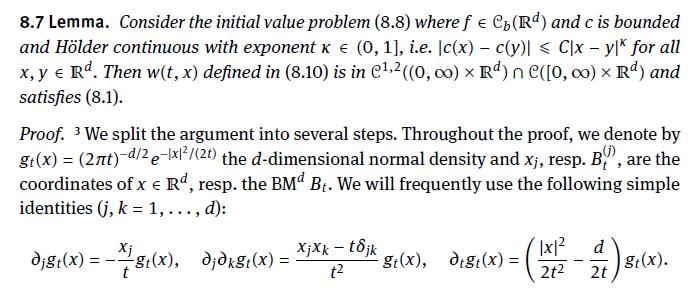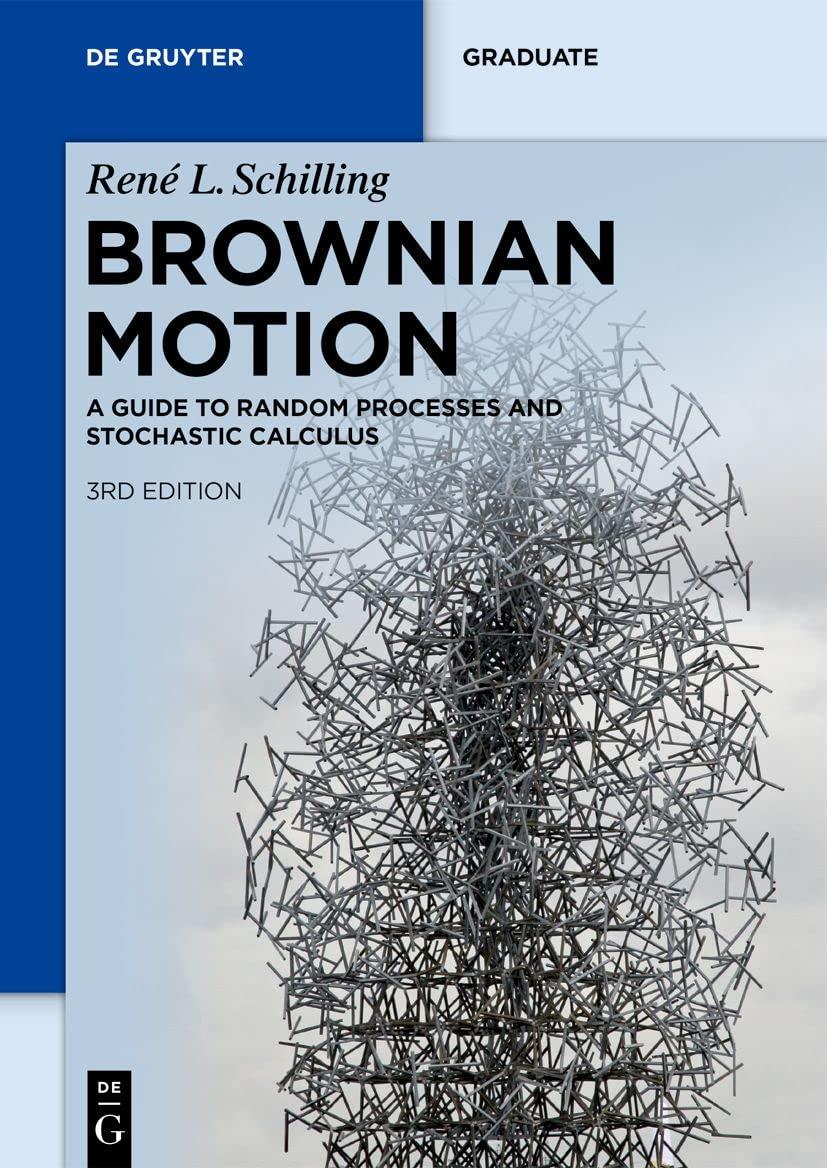Let (g:[0, infty) times mathbb{R}^{d} ightarrow mathbb{R}) be a bounded continuous function such that (g(t, cdot))
Question:
Let \(g:[0, \infty) \times \mathbb{R}^{d} \rightarrow \mathbb{R}\) be a bounded continuous function such that \(g(t, \cdot)\) is \(\kappa\)-Hölder continuous with a Hölder constant which does not depend on \(t\) or \(x\). Mimic the proof of Lemma 8.7 to prove that \(v(t, x):=\mathbb{E}^{x}\left(\int_{0}^{t} g\left(t-s, B_{s}\right) d s\right)\) is in \(\mathcal{C}^{1,2}\left((0, \infty) \times \mathbb{R}^{d}\right) \cap \mathcal{C}_{b}\left([0, \infty) \times \mathbb{R}^{d}\right)\) and satisfies (8.1). Explain why this proves, under suitable assumptions on \(g(t, x)\), No.3 in Table 8.1.
Data From Lemma 8.7

Fantastic news! We've Found the answer you've been seeking!
Step by Step Answer:
Related Book For 

Brownian Motion A Guide To Random Processes And Stochastic Calculus De Gruyter Textbook
ISBN: 9783110741254
3rd Edition
Authors: René L. Schilling, Björn Böttcher
Question Posted:





